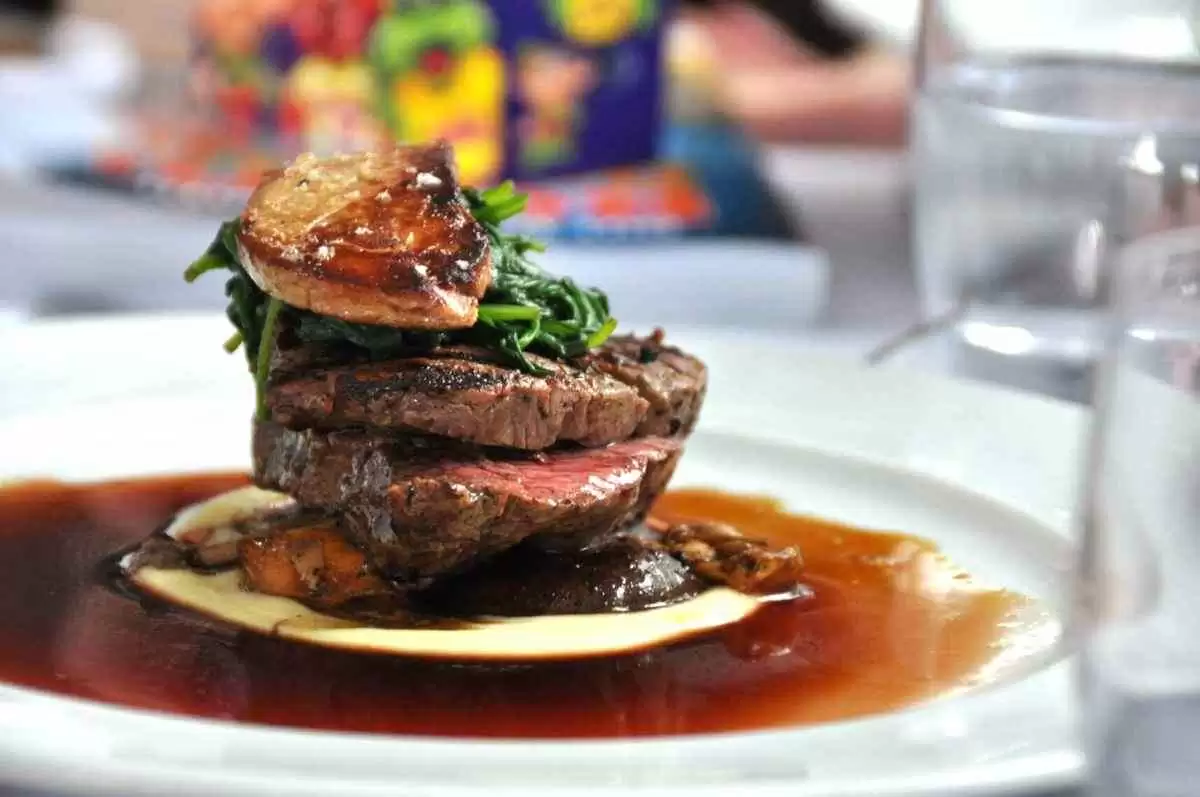
Celiac.com 08/28/2023 - Living with celiac disease comes with its unique set of challenges, and one of the most intricate aspects is managing your dietary needs in social situations. Whether it's dining out at a restaurant, attending parties, or simply joining friends or colleagues for a meal, navigating celiac disease in these scenarios requires a blend of awareness, communication, and preparedness. In this article, we will delve into practical strategies that individuals with celiac disease can employ to effectively manage their dietary requirements while still enjoying the social aspects of eating with others.
The Etiquette of Bringing and Serving Gluten-Free Food
In many social gatherings, it's not uncommon for attendees to contribute dishes to the meal. For individuals with celiac disease, bringing and serving gluten-free food is not only a way to ensure their dietary safety, but also an opportunity to educate and engage others in understanding their needs. Here are some etiquette considerations to keep in mind:
- Communicate Ahead of Time: If you're attending an event where you know food will be served, consider reaching out to the host in advance to discuss your dietary requirements. This gives them a chance to accommodate your needs and helps avoid awkward situations.
- Bring a Dish to Share: Prepare a delicious gluten-free dish that you can bring to the gathering. Not only will this ensure you have safe options to eat, but it also introduces others to the idea that gluten-free cooking can be good, and it can spark positive conversations about the gluten-free diet and celiac disease.
- Label Clearly: If you're contributing a gluten-free dish, label it clearly to prevent cross-contamination. Use a bold marker or tape to clearly indicate that the dish is gluten-free, and include a separate serving utensil that is also labelled.
- Identify Danger: If you are at a gathering that offers different foods on a shared table, be sure to look over everything closely before eating anything. Could the potato chips have cookie crumbs on them? Notice how things are laid out, how people are taking food from the various dishes, and avoid anything that might be contaminated. Does every dish have its own serving utensil? If you are at a BBQ, hopefully you can speak with the cook and be sure that your burger wasn't cooked where he might be heating up wheat buns. Pay attention to the details, and if things look sketchy, sometimes it's best to avoid eating at all (but hopefully you brought a safe dish or backup snack).
How to Not Embarrass Others When Declining Unsafe Food
Celiac.com Sponsor (A12):
Politely declining food that doesn't meet your dietary needs can sometimes be a delicate task, especially when you don't want to offend the host or others. Here are strategies to handle this situation with grace:
- Express Gratitude: Start by thanking the host for their thoughtful gesture in offering you food. Emphasize your appreciation for their effort while gently mentioning your dietary restrictions.
- Educate Politely: Politely explain that you have celiac disease, which means you can't consume foods containing gluten. You might mention that even small amounts of gluten can cause health issues for you.
- Suggest Alternatives: If possible, suggest alternatives that would be safe for you to eat. This not only showcases your positive approach but also eases the host's concern about accommodating your needs.
The Best Strategies for Dining at Restaurants Safely
Dining out at restaurants requires an extra level of vigilance to ensure your meal is truly gluten-free. Here are effective strategies to consider:
- Research Ahead: Before choosing a restaurant, research their gluten-free options online or call ahead to inquire about their practices for avoiding cross-contamination. If you've been invited to a restaurant by others, find their online menu to see if they have gluten-free offerings, or call the restaurant directly during non-busy hours to see if they offer safe dishes.
- Be Specific with Servers: When you arrive at the restaurant, communicate your dietary needs to the server clearly and confidently. Ask about menu items, ingredients, and preparation methods.
- Emphasize Cross-Contamination: Stress the importance of avoiding cross-contamination to the server. Ask if they can take extra precautions, such as using separate utensils and cooking surfaces. If they offer gluten-free pasta, be sure that it is cooked in a separate pot from regular pastas.
- Avoid Risky Dishes: Opt for naturally gluten-free dishes or items that require minimal modifications. Steer clear of foods that are more likely to be contaminated, such as fried items or dishes with complex sauces.
Other Considerations for Social Situations
- Carry Gluten-Free Snacks: Keep a stash of gluten-free snacks in your bag or car. This ensures you have a safe option in case the available food is not suitable for you.
- Educate Friends and Family: Take the time to educate your close friends and family about celiac disease. This creates a support network that understands your needs and can advocate for you in social situations.
- Develop Go-To Dishes: Master a few gluten-free recipes that you can confidently prepare and bring to gatherings. This guarantees you have a delicious option and encourages others to enjoy gluten-free food. Likewise, understand how different dishes are prepared so you can ask the right questions when eating in a restaurant or someone else's home.
Navigating celiac disease in social situations requires a blend of proactive planning, effective communication, and an understanding of your own needs. By employing the strategies outlined in this article, you can confidently participate in social gatherings, enjoy meals at restaurants, and foster an environment of awareness and inclusion. Remember, your health and well-being are of paramount importance, and with the right approach, you can savor every social occasion while staying true to your dietary requirements.












Recommended Comments
There are no comments to display.
Create an account or sign in to comment
You need to be a member in order to leave a comment
Create an account
Sign up for a new account in our community. It's easy!
Register a new accountSign in
Already have an account? Sign in here.
Sign In Now